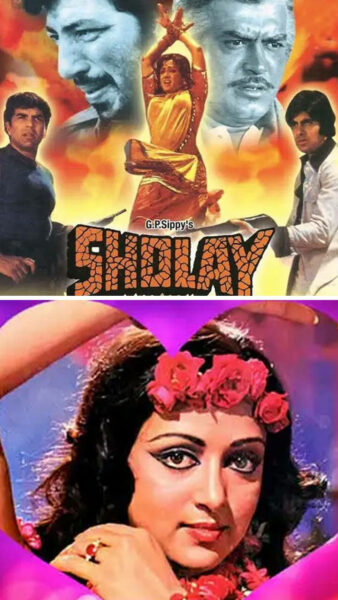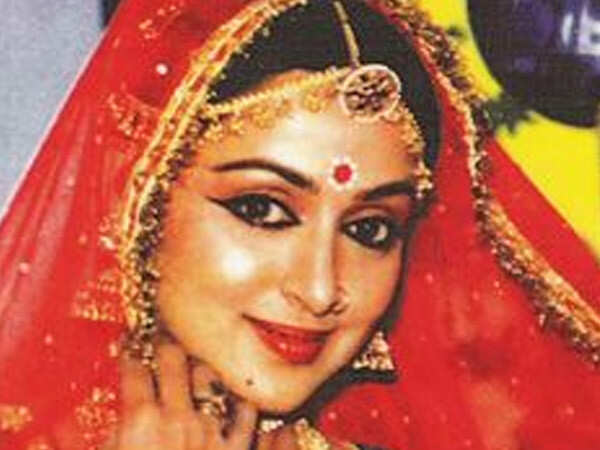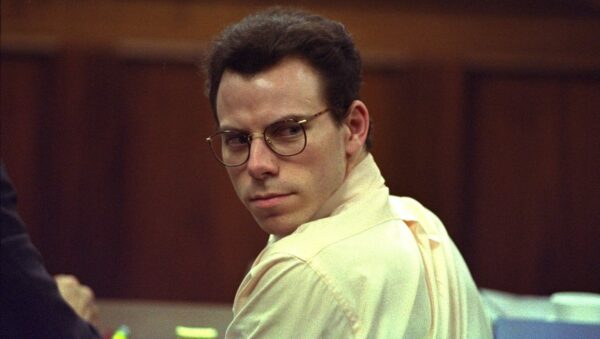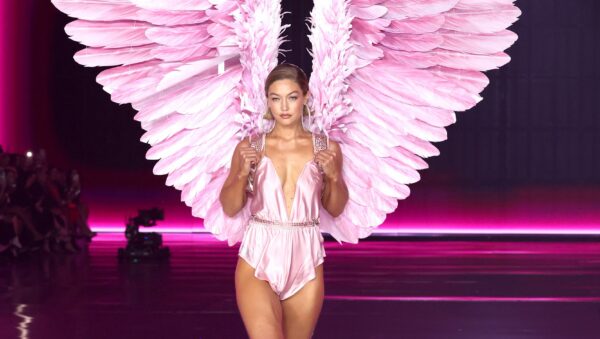EXCLUSIVE: Subhashree Ganguly on Bengali cinema challenging roles and more
6 min read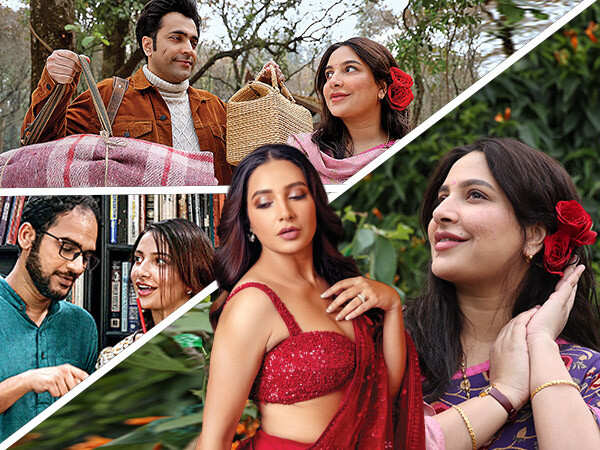
In Bengal, it is customary for younger people to address their elders with terms like ‘di’ or ‘da’ to show respect. So when I address her respectfully as di, she bursts out laughing. She immediately adds that she sees me as a younger sister and can’t wait to know more about me. If TikToker Jools Lebron were from India, she might describe Subhashree as “very demure and very mindful,” a fitting description given how quickly we bond over our shared love for Bengali cinema. Subhashree, who identifies herself as a ‘daka buko’ (fearless girl), approaches the conversation with the ease an old friend. Our conversation veers from her humble beginnings to her becoming a leading figure in the Bengali industry, as she recounts her early career challenges, which include familial scepticism and financial difficulties. Despite her father’s initial resistance, she persisted, motivated by a desire to prove herself. Ask her about the situation at home when she told them about her acting ambitions and her nervous laughter gives away the stress she faced at home initially. “They were completely against it, especially my father,” she reveals. “My father did not support me but my mother and sister did.” Growing up in a joint family, everyone’s opinions counted. “No one encouraged me to pursue acting.” Even when her films did well, her father’s scepticism persisted. This, she says, gave her extra impetus to work even harder.
Financial independence was another important factor in her journey.“I initially accepted financial help from my father,” she admits,“But once he objected to my career choice, I stopped asking him. It was emotionally challenging but I was adamant about my career choice.” Relocating from Bardhaman to Kolkata was difficult but her perseverance paid off. Her first film opportunity came unexpectedly when she won a pageant with approximately 700 participants, prompting Prabhat Roy, one of the judges, to cast her in his film Pitribhumi. She was cast as Kolkata superstar Jeet’s sister. Even if it was not the lead role, it was a fairly significant one. Though it was difficult being alone away from home, the actress says she wasn’t easily intimidated by anyone. Regarding her need for self-protection as a young woman away from home, Subhashree says that being a tomboy growing up, she wasn’t easily intimidated. “No one dared to make any unsavoury approach. They knew I didn’t suffer fools gladly. I’m known in the industry as a rather fierce young woman.” she says.
Subhashree is married to Bengali film director Raj Chakraborty. But before they became friends, they were partners on the professional front. Their collaboration dates back to 2009, when they started working on the movie Challenge (2009). She reminisces, “Our personal equation grew stronger following Abhimaan (2016). We became good friends while making the film. We shifted gears and married after a few years. We later decided to open a production house because our wavelengths matched.” The actress considers Parineeta, Dharmajuddha, and Babli particularly memorable movies for her.
Parineeta was particularly memorable as she won her first Filmfare Award for it. “The role was a significant challenge,” she explains. “Mehul, my character in Parineeta was beautifully written. My desire to prove myself was strong as I prepared for the role.” This hunger has only grown over the years.
She has won praise for her role as an elderly woman who runs a hotel in the popular series Indubala Bhaater Hotel. She admits that transforming into an elderly character for Indubala Bhaater Hotel was a difficult task. “Playing an elderly character required me to delve deeply into that age psychologically. For Mehul, I had to play a young girl which I have already experienced in my life. I know what girls of that age experience. But for Indubala Bhaater Hotel, I had to play an old lady. How do I go to that age psychologically? That was the challenge.” She says she pestered her director, Debaloy Bhattacharya a lot while making the series. She was full of queries and her director patiently explained everything to her. “I usually disturb my directors a lot. But my directors have always supported me. I’ve been blessed that way,” she comments.
Babli was another challenge. Aquiring the rights of the film was a particularly long process. They finally got the rights in 2020. Raj wanted to make Babli in 2004, when he used to shoot telefilms. But Buddhadeb Guha, the writer, did not want to give the rights for it at that point. It was Raj’s dream to work with this story and he would constantly tell Subhashree about it. Buddhadeb finally gave them the rights in 2020. “Buddhadeb Guha, the writer, named me the ideal Babli, which was a huge honour,” she adds. She regrets that Buddhadeb passed away before the film’s release. “I spoke to him over the phone. He wasn’t going out much due to COVID at that point,” she shares.
Subhashree started shooting for Babli right after her daughter Yaalini’s birth. “Yaalini was born in November and the initial plan was to start shooting in March. But we had to start shooting in January. It was really challenging physically and mentally. I knew I had to shoot immediately to fulfil the character’s demands. I was drastically losing weight but my character demanded otherwise. It was difficult but I somehow pulled it off,” she explains.
The film marked her first collaboration with Bengali actor Abir Chatterjee. She already knew him as both were members of a big WhatsApp group, Tolly Club and hence interacted on different subjects in the group. “Working with Abir felt natural because of our existing rapport. He’s a wonderful, down-to-earth person,” she points out.
Early friendships in the industry included Srabanti, though she maintained connections with many friends from school and outside the industry.
“I prefer real conversations at home over attending glamorous parties,” she explains. As a newcomer, she was advised to network at parties but she chose to focus on her work instead. “And it has paid off. I believe people want to collaborate with me because they liked my previous work. I don’t have to socialise to find work.”
The actress points out that Bengali films and serials are evolving towards more sensitive, story-oriented content. “Today’s cinema focuses more on storytelling rather than just star power.” The actress elaborates. “In Bengali cinema, mainstream films have diminished but if they return, they must cater to modern tastes with strong narratives.” When selecting scripts, Subhashree looks for roles that are both deep and challenging. “The role should be so compelling that it keeps me up at night,” she jokes.
She also seeks diversity in her roles and selects projects that she would enjoy watching as a viewer. She has no non-negotiable clause when it comes to scripts. She prefers to choose characters who are significant and challenging. She also intends to select characters who differ from those she has previously portrayed. “When I first hear a script, I approach it as an audience member, trying to decide whether I want to see the movie. This consideration takes precedence over everything else when selecting a film,” she asserts.
Motherhood has made her a bit more choosy. “I want my children to be proud of my work and be able to show it with pride,” she shares. Her son, Yuvaan, has yet to see her films but is beginning to recognise her fame. “He’s a huge Shah Rukh Khan fan and aspires to be like him. He’s curious about my work and asks questions when he sees my pictures on billboards.”
Ask her about her craft and she says she likes to immerse herself in the script, reading it multiple times. “I usually tell my directors to call me for script reading as many times as possible. Whether they are reading with art directors or assistant directors, I ask them to include me as well. I get immersed in the story to be the character.” Even when she is on the sets, she likes to observe the proceedings rather than go to the van and rest after her shot. She feels knowing the nitty gritties of a film helps her perform better. Looking ahead, Subhashree remains open to all kinds of genres. She says,“I’m willing to do both commercial and mainstream cinema, provided the roles are substantial.”EXCLUSIVE: Subhashree Ganguly on Bengali cinema, motherhood, and more. Continue reading …Read More

